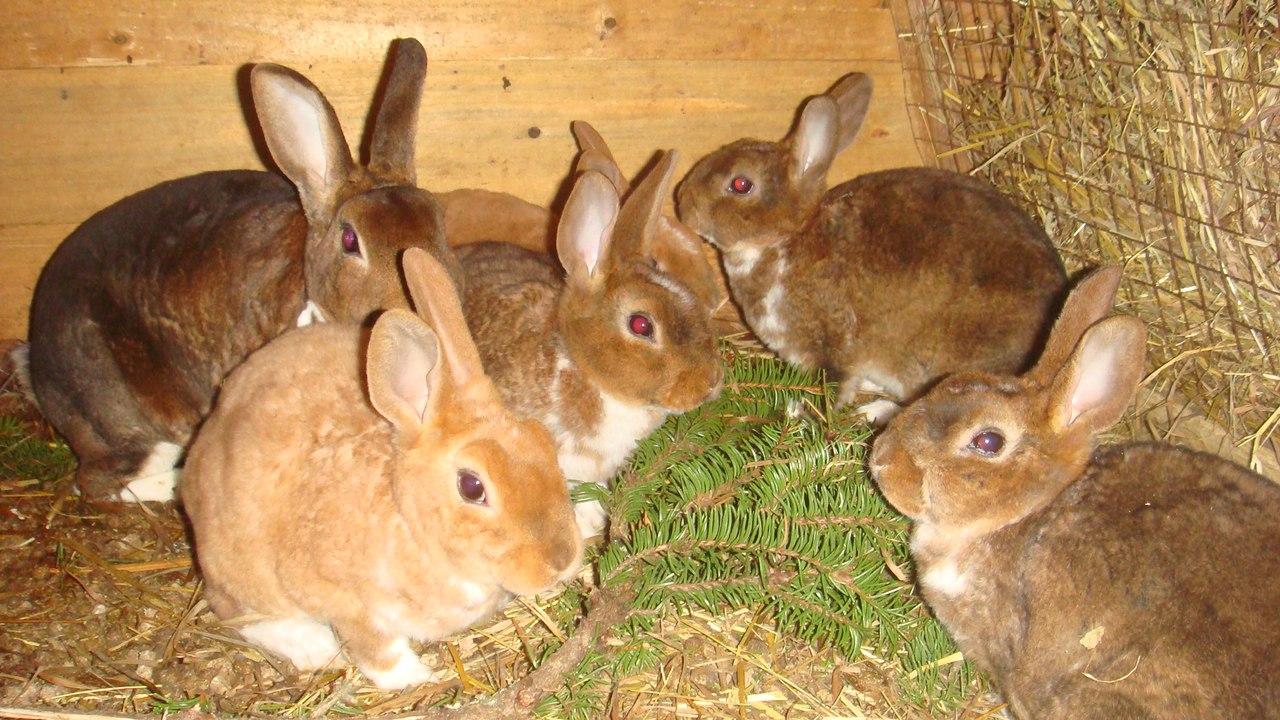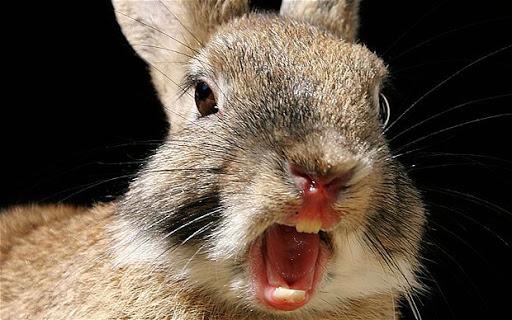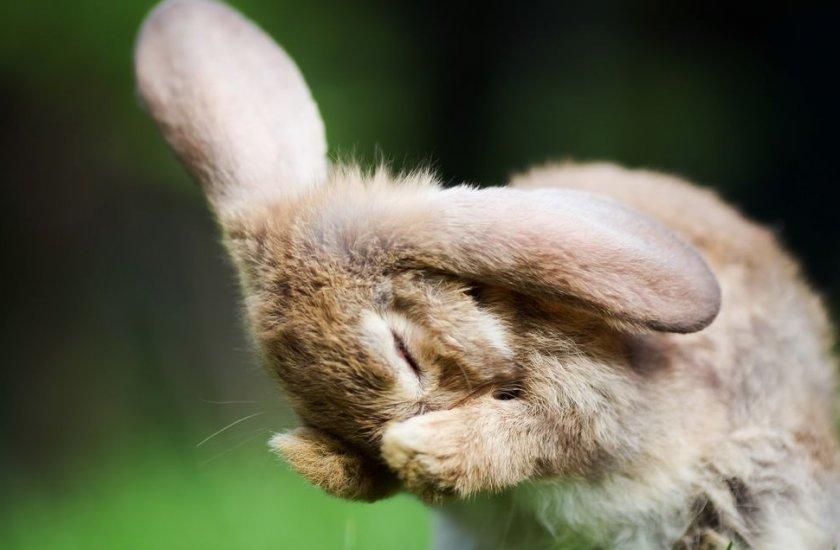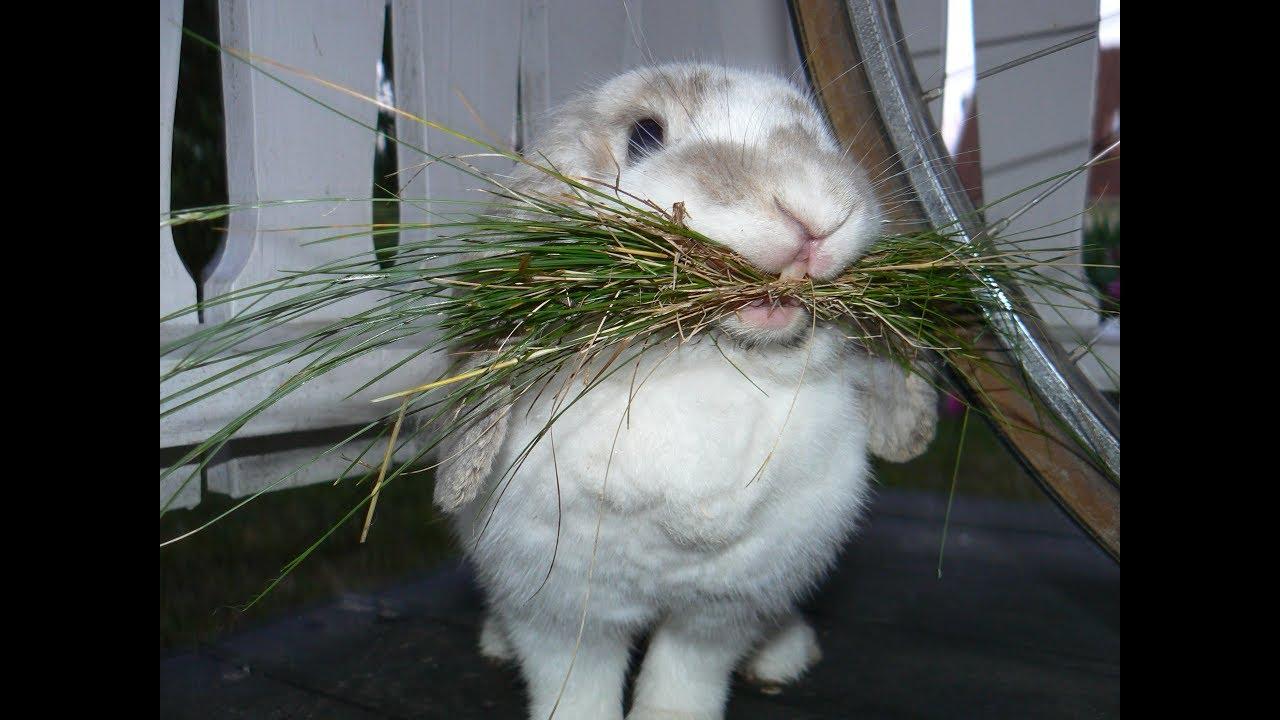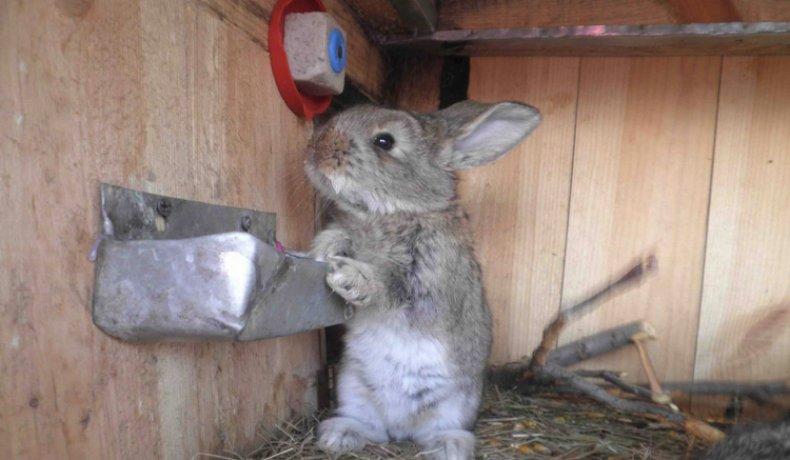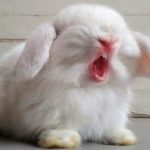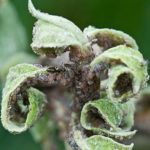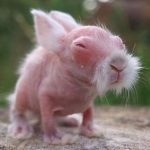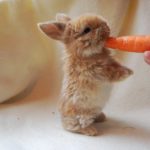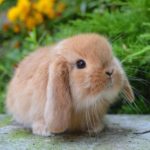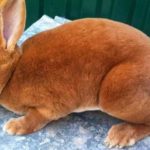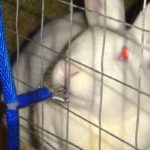Refusal of water and food is an alarming sign that should concern any rabbit breeder, regardless of whether he breeds animals professionally, as an amateur, or keeps them as pets. Therefore, it is extremely important to know what to do when your rabbit is not eating or drinking, which could be the cause of this condition. This will help to recognize the danger in time and prevent recurrence in the future.
Reasons and necessary actions if the rabbit refuses food and water
To ensure proper metabolism, rabbits must eat regularly and drink clean water. If an animal refuses to eat and drink, this indicates problems in the body that need to be identified and corrected. They are not always associated with diseases, so rabbit breeders need to know what exactly can cause such conditions.
Gastrointestinal problems
If the rabbit lies motionless on its side, does not want to eat or drink, and traces of blood are visible in the stool, you can suspect a common phenomenon - the accumulation of hairballs in the stomach. All animals suffer from this, but those with thick, fluffy and long fur are more susceptible to the disease.
When caring for their fur coat, animals swallow the wool. It clumps into lumps that can reach a considerable size. Obstruction occurs, and the animal may die if surgical assistance is not provided in time. In mild cases, administering a small amount of Vaseline oil may help.
Infectious diseases
Rabbits are susceptible to many infections, so if your pet stops eating and drinking water, feels unwell and looks unwell, urgent measures must be taken. In most cases, you will need to contact a veterinarian, since it is impossible to determine numerous diseases based on external signs without testing.
Poor oral health
If the rabbit is inactive and does not try to eat, even if it is tempted by its favorite delicacies, attention should be paid to the condition of its mouth.Rabbits' teeth grow constantly, so if they are not ground down, they will become huge and damage the mucous membranes. These animals are prone to malocclusion, a condition in which the teeth grow excessively and take on the shape of tusks.
Rabbits need to be given solid food - root vegetables, tree branches, grain - so that they can wear down their teeth. If the cause is malocclusion, the defects will have to be manually corrected regularly.
Improper feeding
If not just one rabbit, but an entire herd is lethargic and inactive, one may suspect that something has gone wrong with the diet. The reasons may be the following:
- Excessive, insufficient, unbalanced feeding.
- Lack of vitamins and minerals.
- An abundance of succulent food and white cabbage causes increased fermentation in the intestines and can cause lack of appetite and even illness.
- Dirty, wet food. The contact of feces, spilled water and contaminants on food causes health problems, so it is necessary to monitor the condition of food and promptly remove spoiled or soiled food.
Rabbits need to be provided with nutritious food, given on a schedule and follow the recommendations of veterinarians.
Stressful state
Weakness, refusal to eat and drink can be a manifestation of a stressful situation.
Causes of stress:
- Recent purchase of an animal.
- Moving from one room (cage) to another.
- Adding a new rabbit, possible aggression from other animals.
- In pets, stress is provoked by excessive attention from people, especially small children. If an animal is often squeezed or bothered when it is resting or feeding, this can provoke attacks of aggression and depression. As a result, stress develops and food refusal develops.
- After giving birth, especially the first, a female rabbit may be in a stressful state, refuse to eat and can harm herself and her offspring. Therefore, she and her offspring are provided with comfortable conditions, peace, proper feeding, warmth and cleanliness.
Rabbits are nervous, sensitive creatures, so owners need to first take care of food and cages, and only then purchase animals.
Allergy
Rabbits can develop allergies, often nutritional, that is, associated with the consumption of certain foods, but in some cases animals can react to dust, dust or pollen, detergents, cosmetics and perfumes if they live as pets.
The reaction is manifested by lacrimation, swelling of the eyes and mucous membranes, refusal of food, and damage to the coat. The animal can scratch its skin until it bleeds; the ears and genital area are especially affected.
Poisoning
Rabbits are capable of chewing on everything, from food to their own cells. They are capable of chewing on inedible and even toxic things, poisonous plants, which leads to poisoning. In addition to refusing to eat and drink, poisoning, unlike indigestion, is accompanied by profuse vomiting and diarrhea. The animal's condition is rapidly deteriorating, aggravated by dehydration and can quickly lead to death if urgent measures are not taken.
Wrong diet
Monotonous feeding leads to the fact that rabbits strive to “fill their bellies” with the food that is given to them, because they are not satisfied or lack nutrients. A dense lump of eaten foods may form in their stomach, which will cause pain, indigestion and poor health.
Injuries
Refusal to eat can be caused by injury, especially if the stomach is injured. Any serious damage is accompanied by lethargy, weakness, refusal to eat, and changes in appearance. Domestic rabbits suffer from falling from furniture and electric shocks, being bruised by feet or doors, being crushed by cage doors, and being bitten by other animals. If a rabbit roams freely around an apartment or house, owners need to be very attentive and careful.
Catarrh of the stomach
The following types of catarrh are found:
- Sour, characterized by copious mucous secretions.
- Alkaline, with loose stools.
- Cold, with bloody stools and rhinitis. Occurs with severe hypothermia.
All three varieties require a quick response because they can lead to the death of animals.
What can be done to avoid such problems?
A rabbit can live up to 3 days without food, and can survive up to 6 hours without water. This indicates the need to quickly make a decision and seek help.
To avoid losing animals, you need to follow these recommendations:
- Provide your pet or commercial livestock with comfortable and calm living conditions, avoiding stress.
- Make sure that cages and premises are regularly cleaned, ventilated and disinfected.
- Create conditions for physical activity and mobility.
- Get regular checkups with your veterinarian and keep up with your vaccination schedule.
- Give only natural and fresh food.
- Create automatic watering so that the water is clean and always freely available.
- Keep wires, household chemicals and cosmetics, plants and other dangerous objects out of the reach of the animal.
- Brush the animal during shedding, give one pitted prune twice a week to remove hair that has gotten into the stomach.
By paying attention to rabbits, you can save the animals from suffering and prolong their lives.


